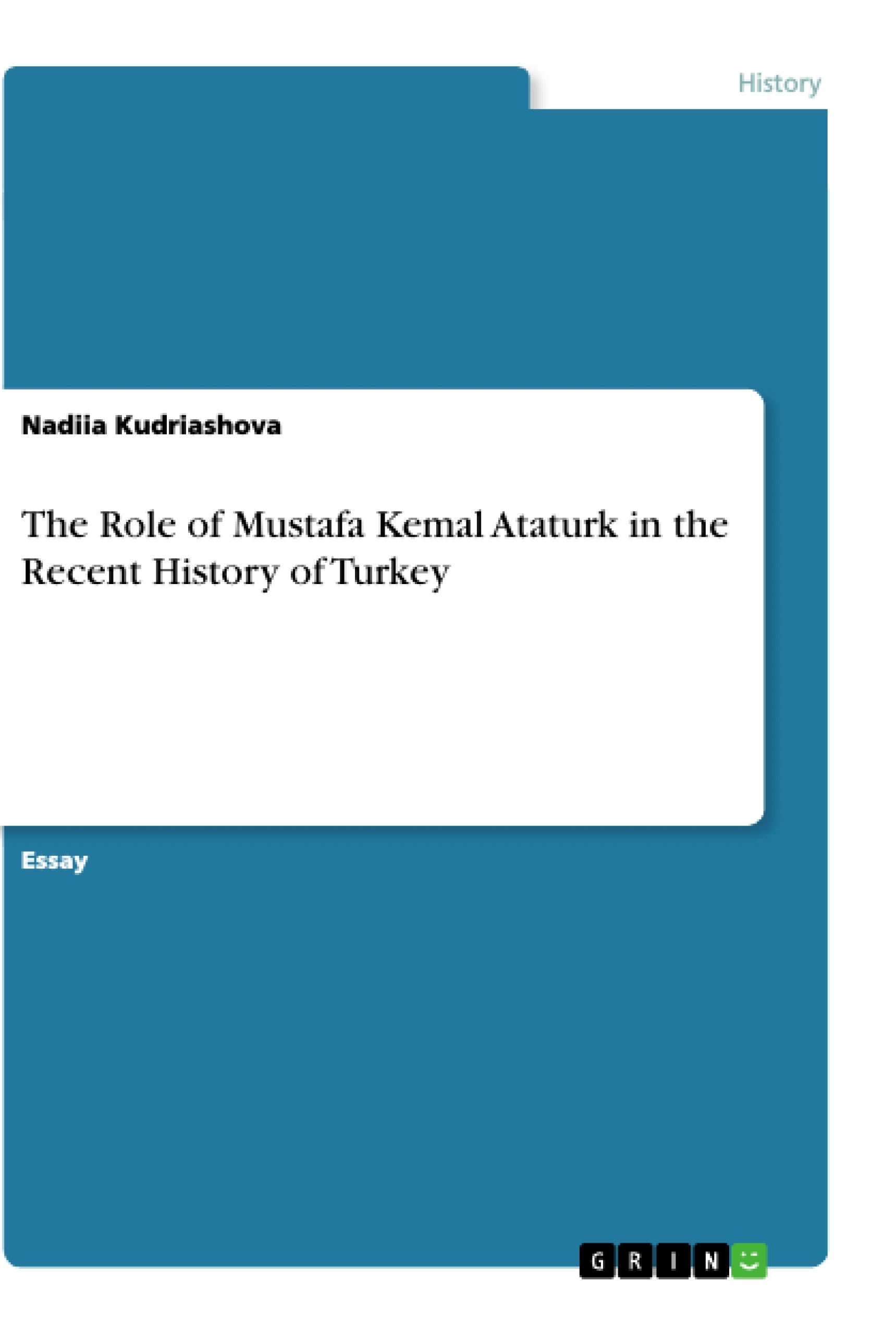The defeat of Germany, on the side of which the Ottoman Empire fought, in the First World War, the military setbacks, and discontent in the country, and, finally, the surrender of Turkey in October 1918 put an end to the power of the Young Turks, who defended the integrity of the empire. The Allies annexed all of its external possessions. The question arose what post-war Turkey should be. In these difficult days, the Turkish people, led by new leaders, whose main goal was the independence of all Turkey, took over the decision of the issue. On the wave of national-patriotic upsurge in April 1920, in Ankara, a new Majlis was elected - the Grand National Assembly of Turkey. The chairman of the Assembly was Mustafa Kemal Pasha (known as Ataturk), who proclaimed the new body the only legitimate authority in Turkey.
The problem of the role of Kemal Ataturk in the recent history of Turkey has long attracted the attention of orientalists by its relevance, complexity, and versatility. However, it is especially noteworthy that, at a critical stage in the development of the Turkish state, Kemal Ataturk found the strength, courage, and talent to re-evaluate the role of his country in the world history, lead the struggle for national liberation and independent development of Turkey. Thanks to this, Ataturk eliminated the caliphate, was the first among the Turks who turn views towards civilizational Europe, and, taking advantage of the fact that the country is fighting for national liberation, ended the Sharia, the sultanate, and the caliphate, intensified the policy of Westernization, managed to convince the Turks that the secular nature of the state with a careful attitude to the traditions of Islam is the guarantee of the country's further well-being. He is regarded as a person who sought to turn Turkey to Western culture. Thanks to him, Turkey has become the only Islamic country that has embarked on the path of democratic development and acceptance of the values of Western civilization.
Table of Contents
- Abstract
- The Role of Mustafa Kemal Ataturk in the History of Turkey
- The Rise of Mustafa Kemal Ataturk
- Mustafa Kemal Ataturk: The Father of Modern Turkey
- Military Career of Mustafa Kemal Ataturk
Objectives and Key Themes
This text aims to provide a comprehensive overview of Mustafa Kemal Ataturk's life and legacy, focusing on his pivotal role in the creation of modern Turkey. It examines his rise to power, his military achievements, and his reforms that shaped the nation's identity and political system.
- The impact of the First World War on the Ottoman Empire
- Mustafa Kemal Ataturk's leadership in the Turkish War of Independence
- The establishment of the Turkish Republic and Ataturk's reforms
- Ataturk's legacy and his impact on contemporary Turkey
- Ataturk's legacy and his impact on contemporary Turkey
Chapter Summaries
- The abstract provides a brief overview of Ataturk's life and his significance in Turkish history, highlighting his role in the fight for national liberation and the establishment of a secular Turkish state.
- The second chapter examines Ataturk's rise to prominence, focusing on his leadership in the Turkish War of Independence and his role in the establishment of the Turkish Republic.
- The third chapter details the military career of Mustafa Kemal Ataturk, outlining his involvement in various wars and campaigns, including the Italian-Turkish War, the Balkan War, and the First World War.
Keywords
This text explores the key themes of Mustafa Kemal Ataturk, the Turkish War of Independence, the founding of the Turkish Republic, Ataturk's reforms, secularism, Westernization, and the legacy of Ataturk in contemporary Turkey. It delves into the impact of Ataturk's leadership on the nation's identity and its role in the world.
- Quote paper
- Nadiia Kudriashova (Author), 2017, The Role of Mustafa Kemal Ataturk in the Recent History of Turkey, Munich, GRIN Verlag, https://www.grin.com/document/484444




